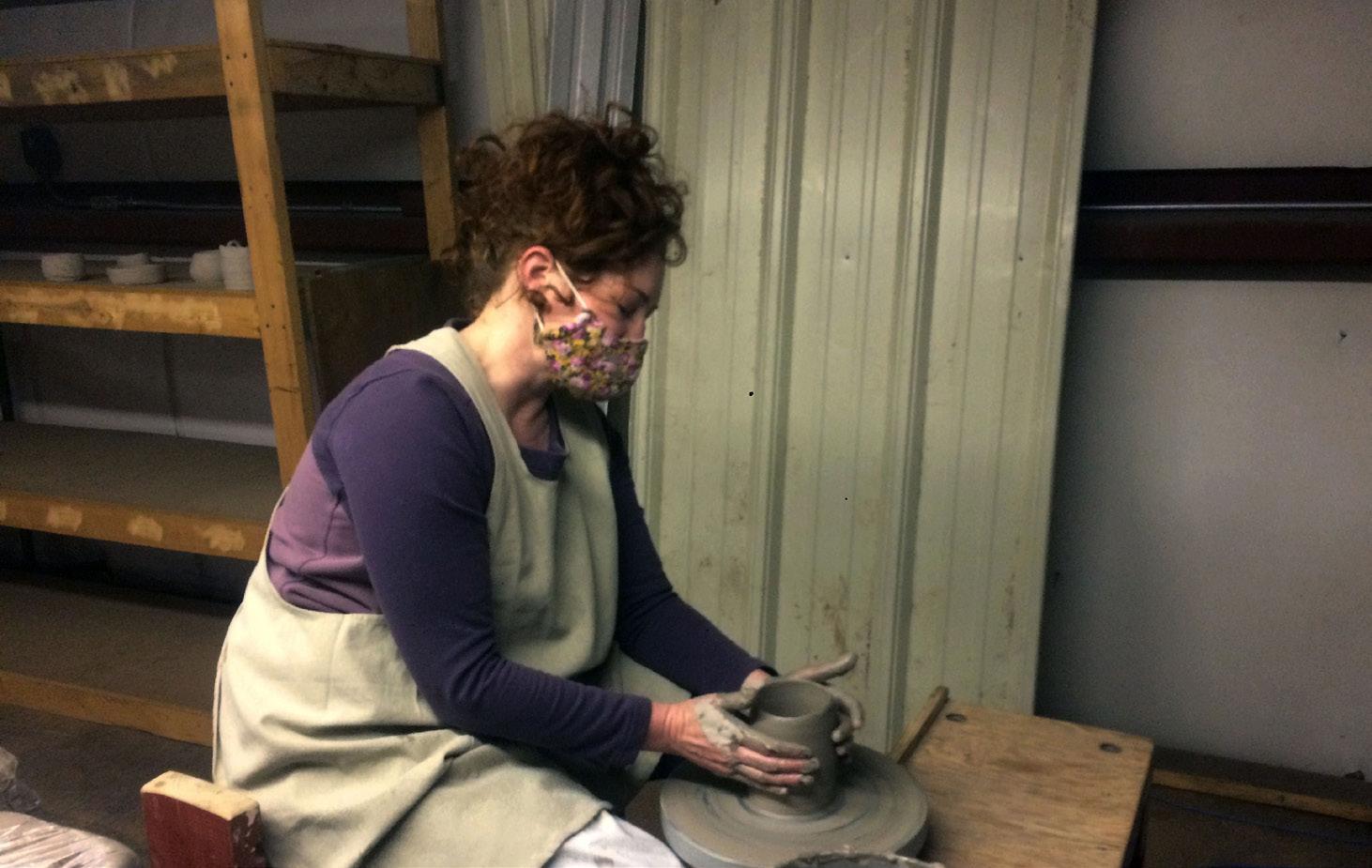
3 minute read
Makerspace Nurtures Creativity
Innovators share tools, space and ideas at Coco-op. Courtesy photo
Warehouse of Dreams
A Flagstaff makerspace is providing a fertile stage for invention
By Betsey Bruner, FBN
It is hard to stop a good idea, even with obstacles such as months of coronavirus fears, a flagging economy and a wayward car in December that smashed into the corner of the warehouse that houses The Flagstaff Makerspace Coco-op on West Kaibab Lane.
Opening in July of last year, the co-operative venture honors the makerspace ideal: Enter with an idea, learn to make it, make knowledgeable and curious friends.
In recent years, makerspaces have cropped up across the country to provide places where people with shared interests can gather to work on projects while exchanging ideas, equipment and knowledge.
Graham Campbell, an outdoor adventure guide from Knoxville, Tennessee, moved to Flagstaff in 2019 and found work as a mountain biking, hiking and canyoneering guide.
Long interested in different trades and tinkering with projects, he also brought with him a dream of starting a makerspace for adults, choosing Flagstaff as a fertile ground for innovation and invention.
“Outdoor guiding is seasonal almost everywhere, so most guides have to completely uproot every four to six months to chase work, often in another state,” he said. “I had been seeking to put down roots and invest energy into a permanent community.”
After researching makerspace-type organizations here, Campbell sought the help of Alice Christie, a veteran educator and founder of Tynkertopia, Flagstaff’s STEAM (science, technology, engineering, arts and math) community space that focuses on children and families and encourages creativity, inquiry and learning through hands-on activities.
“Alice has become a wonderful friend and a super-helpful, giving resource,” he recalled. “I could tell that she had built a resource oriented around the same ethos that inspires makerspaces. The primary difference is that Tynkertopia serves school-aged youth. We saw that adults in Flagstaff had no such resource.”
The new non-profit exists to help local adults get their “creative side on,” he said, and to “interconnect locals of deep talent and expertise, and to foster the creation of new startups, products, and teams. In doing so, we hope to electrify Flagstaff’s economy.”
He asked Christie, who is also a professor emeritus at Arizona State University, if she could help him find someone else who might be interested in creating a new makerspace.
She gave him contact information for Ward Davis, a retired chemical engineer who was also passionate about recycling and refurbishing items that others throw away.
Although more than 40 years apart in age, the two men found much in common when they met for coffee and began brainstorming a path for an adult makerspace.
The two men started asking around and posting online to find other people who wanted such a space in town.
The response was overwhelming, including from local entrepreneur Jay Wellman, who offered his facility at OVRLND, a company that makes custom pop-up camper tops, to host the first planning meeting.
After that vibrant brainstorming session with a dozen attendees, the group of people who would become Coco-op began to assemble weekly in the pews at Cornish Pasty to plan and discuss options. Quickly stepping up to make the ideal concrete were early members Tina LaChance, Thorsten Frömming, Phil Scandura and Mark Byrnes, who became directors on the board of the new non-profit. For their new endeavor, they coined the name Coco-op, a blending of Coconino and co-op.
The growing team began the hunt for an affordable warehouse space in the areas of town zoned for light industrial.
After an exhaustive search, Coco-op member and woodworking hobbyist Rebecca Crawford spotted an opportunity in a warehouse for rent in west Flagstaff.
At 5,000 square feet, the warehouse was spacious enough to actualize their dream of creating a community-oriented workspace


